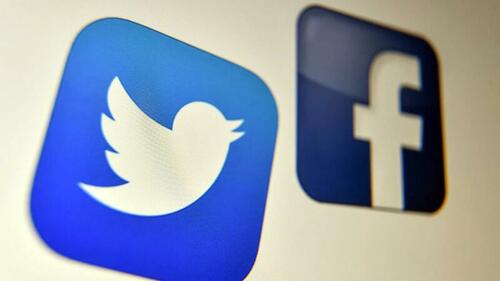By Michael Every of Rabobank
Piffle Durch Waffle
Well, there was a volatile quarter; and if you think Q2 looks to be any better then you weren’t paying much attention in Q1.
US stocks had the worst quarter for two years, i.e., since Covid, underlining the scale of the shock of the Ukraine metacrisis, even if some say they have far from realised or priced in what is still to come because of their innate “because markets”-ness.
US bonds had one of their worst quarters since the Civil War 157 years ago, hit by a Fed reacting late to a metacrisis out of its control and structural inflation it saw as “transitory”. There I can report, via someone other than a reporter in the room, that the Fed’s Harker yesterday spoke of measuring inflation in terms of increases in the price of a friend’s golf club membership(!) and seemed to rely heavily on “my mate says…” anecdotal wisdom. Gives one full confidence the Fed will hit a hole in one on monetary policy, doesn’t it?
Bloomberg speaks of talk of 1970’s-style inflation returning. The Fed doesn’t. True, we don’t have those kinds of unions. But as geopolitics-driven deglobalisation sees manufacturing supply chains shift, we de facto close off cheap foreign labor physically represented as imports. Meanwhile, the government response to higher prices is often more stimulus. The White House is to release oil from its Strategic Petroleum Reserve (SPR): 1m barrels a day for six months, around a third of the total. This is not due to economic war: nobody is being asked to change consumption patterns, apart from boycotting Dostoevsky and Mussorgsky. Rather, the SPR is being used because prices are too high. In which regard, yes, oil will drop, and bond yields; but the lower oil price will slow any domestic increase in output; and when the SPR draw-down stops and it has to be refilled, prices will go back up again,
FX markets were choppy. As commodities soar and current accounts go into the red, and some try to print their way out of pain while pegging bond yields via activist central bank techniques used under the ‘new normal’, we can expect more downside for net importers and more upside for net exporters; and a sustained US dollar bid even if the dollar is far less popular, because debts still have to be serviced, and food and fuel bought, with less easily available greenbacks.
Commodities were understandably back to the 1970s. but we do have the same kind of supply-side shock as commodities look they did nearly five decades ago. On which note, the big news yesterday was Putin’s announcement that EU payment for gas will indeed be in RUB, and Europe insisting, no, it will be in EUR or USD. We saw EU gas prices swing 18% on the day before they realized that, so far, Putin really has succeeded in rebuilding parts of the Soviet Union – inserting unneeded labor into a simple process. The EU pays Gazprombank in EUR; Gazprombank swaps it into RUB; and then remits both to Russia.
As a parallel, I recall post-Soviet-but-still-Soviet supermarkets where you had to queue to see the (poor) choice of food available in each section; calculate in your head the price of 200g of grey sausage; queue at a separate cashier to tell them “200g of sausage at 10 roubles a kilo, so 2 roubles total”; they gave you a chit; and then you went back to the meat counter and queued again to swap the chit for grey sausage. And so on for every item you bought. Of course, nowadays we have empty shelves with efficient self-service and credit cards all over.
Depressingly, food continues to be weaponized. Ukraine alleges Russia is not only deliberately bombing Ukrainian food depots but is attacking its agricultural industry, including mining fields and destroying farm equipment. Russia also just announced a ban on the export of sunflower and rapeseed starting today. The US is also, unhelpfully, talking about perhaps increasing ethanol (so, corn) usage to try to bring down its energy prices.
France wants the UN World Food Programme and the Food and Agriculture Organisation (FAO) to coordinate the allocation of extra supplies to countries facing urgent needs. This was a food security initiative backed by the G7 and to be discussed with G20 nations including China and India, which have amongst the largest grain stocks in the world. In short, we will soon find out who is helping and who is hoarding. This will be one of the topics discussed at the EU-China summit to be held today.
It’s amazing how much things have changed for this summit compared to the last one, which was held under the auspices of former Chancellor Merkel’s “wandel durch handel” (change through trade) Panda-and-Bear-hugging foreign/economic policy framework. At least in EU terms, has there ever been a more rapid, thorough, and passionate rejection of an entire weltanschauung than of the ‘piffle durch waffle’ that Merkel offered the EU for so long, and which Germany today sees led it to the crisis it now faces? I can’t think of one. Ironically, rather than reheating the stone-cold EU-China trade and investment deal, this summit could potentially see a further large step towards a more bifurcated world of ‘The West vs. The Rest’. Of course, neither side wants that outcome. Yet neither side looks able to bend over the Ukraine metacrisis.
@StuartKLau tweets the view of an anonymous EU official that Europe will pressure China to come out more strongly to try to stop the war – just after China’s foreign minister came out strongly in favor of Russia’s geopolitical position, if not the war itself. He quotes the official directly that:
“China has to realize that, while it thinks that [the war] has nothing to do with EU-China relations, actually it does. We have now a top security interest, not only for Europe, but for the world to address. We won’t whitewash our differences with China.” There are even veiled threats: “President Xi wants to be re-elected at the Congress in autumn. The society has had the stability over the last decades with the permanent promise it will be better for you than the preceding generation? Does he want to risk this? We don’t believe he does.” That’s fighting talk: and China will see it that way.
The official also stated “I don’t think is wise to speculate in detail,“ on possible EU sanctions on China, but ”I think there’s still the space to make the diplomatic argument that we do not believe it’s in China’s interest to provide for a circumvention of sanctions. If we were to see very active circumvention of sanctions –I’m not saying this is happening, I’m not saying it’s going to happen– you would probably see ramifications for China’s reputation globally.” To paraphrase Stalin: “How many divisions does reputation have?”
Indeed, ‘trundle durch bumble’ has not been entirely expunged from the EU. Being proved existentially wrong is not necessarily enough to change minds. (I am not joking, sadly: it’s a universal truth that ‘rationalists’ and ‘but GDP!’ crowds fail to grasp.)
The EU official adds: “Many Chinese citizens [like] luxury products, many of which are produced in EU. Many EU companies, many international global companies decided they no longer wish to market, sell and promote their goods in Russia.” Is the implied threat, beyond that to “reputation”, really that the EU might stop exporting luxury goods to a China already embracing Common Prosperity, to steer away from excess high-end consumption, and Dual Circulation, to encourage local alternatives to imports? If so, it will land as powerfully in Beijing as it did in Moscow. (“No more Gucci! Cancel the war now!”)
I refer back to my comment on inflation and supply chains earlier: the juiciest parts of them are, well, luxuries: who needs them in a war? Ask instead, who makes your widgets? Who makes your products and product packaging? And who provides your raw materials? Not the EU, almost all of the time. For others, things are perhaps shifting.
The White House has invoked Cold War powers to boost electric vehicle battery production. The decision adds lithium, nickel, cobalt, graphite, and manganese to a list of items covered by the 1950 Defence Production Act: former president Trump used the same to spur mask production during Covid; Truman to make steel for the Korean War. However, the total public cash involved is pitiful: just $750m. Moreover, a ranking member of the Senate Committee on Energy and Natural Resources says the step is unlikely to result in any meaningful increase in US production without fixing the permit process (i.e., lowering environmental protections). Recall the pollution involved in getting these minerals, along with similar rare earths, was one of the reasons why their supply was offshored to places with far lower labor costs and environmental standards and sold as a free-trade win-win.
But war is messy: so is economic war; and so is the increasingly linked war against climate change. You cannot get a ‘clean’ segue to clean energy when it needs filthy amounts of dirty inputs first, the lion’s share of which China already controls the supply chains for on the ground because it was thinking ahead. At the very least, if it has to be done to win all the wars at once, it won’t be doable for just $750m. It’s ‘piffle durch waffle’, or ‘baloney durch blarney’ to think otherwise. So, yes, we will see lots of wandel durch handel – just not in the way Merkel envisioned it: quite the opposite.
Now on to Q2, as we plunge deeper into our Brave New World Order.
Happy Friday.







